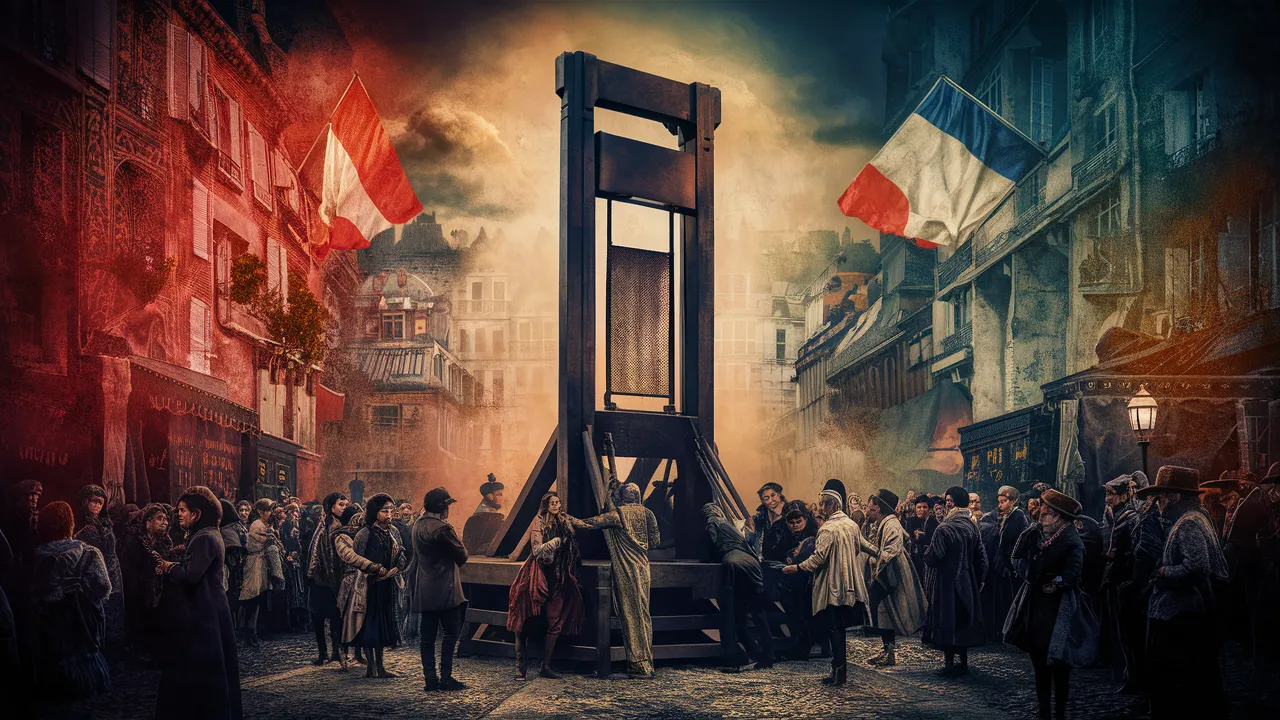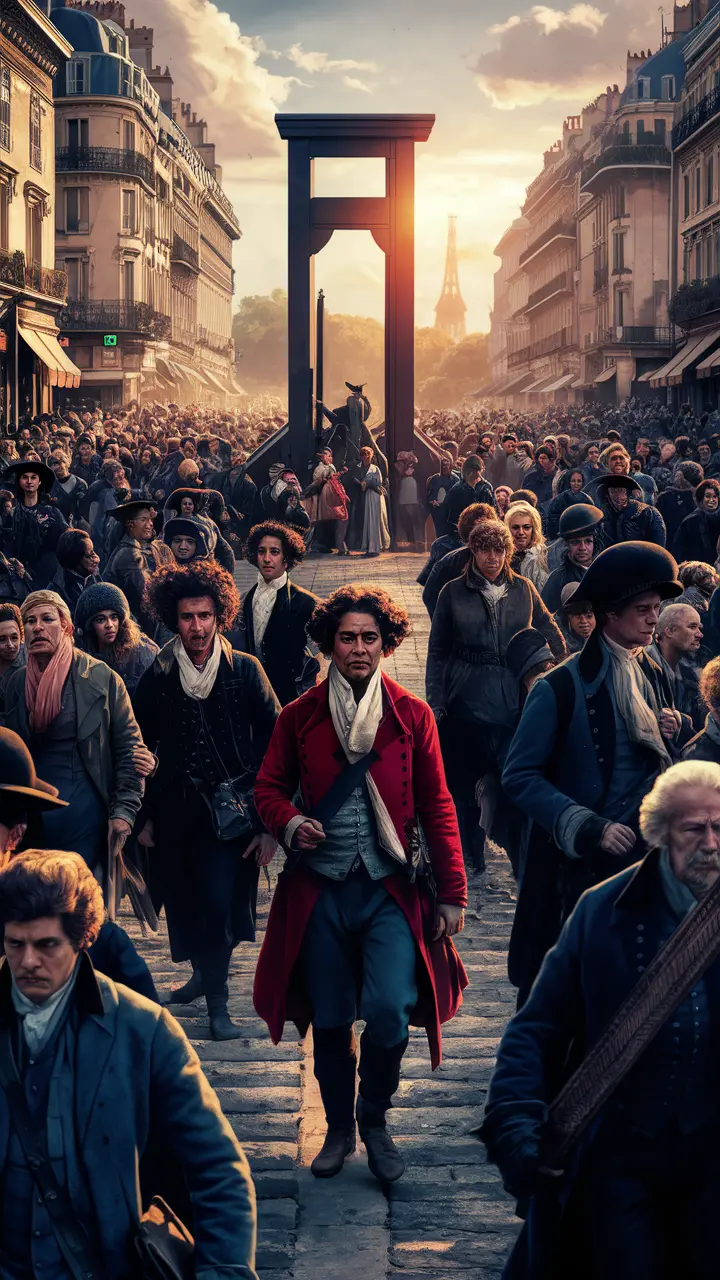The Dark Side of the French Revolution: The Reign of Terror

You think you know the French Revolution? The people overthrowing an oppressive monarchy to embrace liberty, equality, and fraternity for all? Well, brace yourself, because this tale takes a dark turn that's arguably worse than the injustice it was trying to eliminate!
10. The Reign of Terror was a period of violence after the French Revolution
The Reign of Terror lasted from September 1793 to July 1794. Basically, after the French people overthrew the monarchy, the new revolutionary government started executing opponents left and right. Heads were rolling, quite literally!
9. It was led by the Jacobins and Maximilien Robespierre
The radical Jacobin group and their intense leader Maximilien Robespierre were running the show. These dudes were not messing around - they controlled the powerful Committee of Public Safety that sanctioned all the terror and violence. Their goal? Protect the revolution from anyone who wasn't 100% on board.
8. Around 17,000 people were executed by guillotine
How many people died thanks to Madame Guillotine during this bloody period? Estimates range from 17,000 officially executed to possibly over 40,000 deaths total when you include those who died in prisons without trial. Yeah, it was pretty nuts.
7. It eliminated potential threats to the Revolution
The Terror Brigade went after any potential enemies of their radical vision for a new France - from nobles and clergy, to even those pesky Prussian and Austrian forces trying to interfere from outside. Gotta admit, they were effective in consolidating revolutionary control...through utterly terrifying means, but hey, effective!
6. It reflected the radical philosophy of the Jacobins
These Jacobin dudes had some intense philosophical beliefs driving their actions. They genuinely thought using terror and violence against enemies was flat-out virtuous and necessary to defend their Enlightenment-inspired republican ideals and create a new rational order. Intense, right?

5. It targeted even moderate Revolutionaries as "Enemies of the Revolution"
At first, only hardcore monarchy loyalists got the chop. But as the Terror escalated, even those previously involved in overthrowing the king started looking like potential threats to the increasingly radical new regime. ¯\(ツ)/¯
4. It led to the Thermidorian Reaction ending the Terror
After a while, people were like "okay, this is getting out of hand." The excesses of endless executions provoked a counter-revolution called the Thermidorian Reaction in July 1794 to finally put the brakes on the Terror madness. Robespierre himself ended up getting the guillotine treatment! How's that for irony?
3. The White Terror followed targeting former Jacobins
But it didn't quite end there. After overpowering the Jacobins, the new regime launched their own "White Terror" to get revenge by persecuting former Jacobin terrorists. Because obviously the solution to a reign of terror is...more terror? Let the vicious cycle continue!
2. It aimed for a centralized republican democracy but became dictatorial
The Jacobins' whole deal was centralizing power in their new republic based on Enlightenment values like reason and individual rights. But with their increasing willingness to violently oppress any opposition, they ended up becoming the very kind of dictatorial regime they allegedly rallied against. Oops?
1. Its long-term impact divides historians on the Revolution's legacy
So was the French Revolution an ultimate win for democratic progress or a total disaster? That's the big question that still has historians feuding today. Some argue the Terror was an unfortunate but necessary phase to protect revolutionary ideals. Others say it hopelessly discredited the whole thing through oppression and hypocrisy. With so much bloodshed, you can see why people are conflicted over whether the revolution's goals of liberty and equality were even achieved in the end. Quite the dramatic story, non?
Did the French Revolution Actually Deliver on "Liberté, Égalité, Fraternité"?
The revolutionary motto promised liberty, equality, and fraternity for all. But the Reign of Terror's brutal oppression of any perceived enemies totally contradicted those ideals.
Sure, getting rid of the monarchy allowed more rights and democracy. And the patriotic spirit did inspire European independence movements.
But the Jacobins proved just as dictatorial as what they overthrew, favoring their own at the expense of others. The excessive violence against fellow citizens lacked any real "fraternity."
While planting some seeds of modern liberal democracy, the Revolution's bloody means likely overshadowed its motivating philosophy in many minds. The ends vs. means debate still rages over whether the French Revolution's mixed legacy actually achieved its noble goals.
